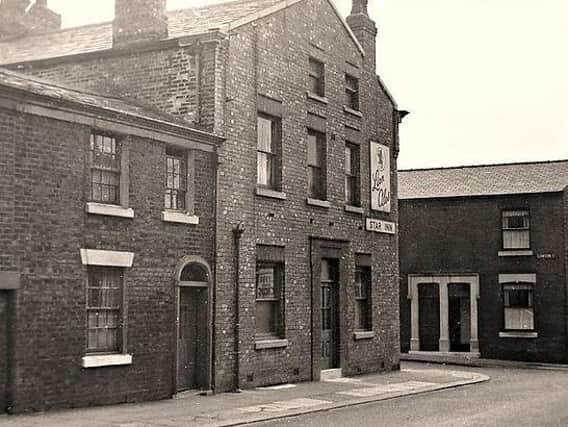Drunken Preston police officers face wrath of the court in case from yesteryear


When Samuel Bannister retired as Chief Constable of Preston in September 1853 he was replaced by Mr. Joseph Gibbons who came from Plymouth. The new recruit being granted an allowance of £15 to move his family to their new location.
With a police force of barely 40 officers he spent many an hour patrolling the streets himself and often became involved in quelling drunken behaviour.
Advertisement
Hide AdAdvertisement
Hide AdEvents in early September 1854 highlighted the size of the task he faced. At the Preston Police Court P. C. Robert Davey charged William Parkinson, the landlord of the New Gas Inn, on Lawson Street with refusing him admission on the previous Monday night. He claimed that shortly before midnight he had knocked on the locked door suspecting that persons were within drinking after hours. He stated that having failed to gain entry he returned half an hour later and was allowed in by the landlord after the late night revellers had departed.
When questioned by Mr. Blackhurst on behalf of the accused it became apparent that P.C. Davey had called at a number of public houses that night whilst on duty and had a few glasses of ale.
The cross examination revealed that a nightwatchman called Hayes had been in the constable’s company that evening and that the pair had been seen drinking in the Rising Sun and the Star Inn.
In fact, contrary to his earlier statements, the constable after being warned that he was under oath, admitted to having a glass of porter with Hayes at the Star Inn shortly before the pair went to the New Gas Inn where seemingly they were hoping to have more drink. Consequently the magistrates had no hesitation in dismissing the case and Mr. Gibbons immediately announced that P. C. Davey was dismissed from the police force.
Advertisement
Hide AdAdvertisement
Hide AdWithin days two more constables were in trouble and before the magistrates. P. C. Wigley, who had only been in the police force a month, was charged with being drunk and disorderly whilst on duty, on the previous Sunday morning.
According to Police Sergeant Whittaker he had been on patrol when a person came up to him and said one of his officers was drunk in nearby William Street. When he arrived at the scene a crowd of about 100 were gathered around yelling that the constable was drunk and incapable.
He at once took him to the lock up in Turks Head Yard and it was decided that P.C. Knight would see him safely to his home to sleep off his intoxication.
Unfortunately, P.C. Wigley would not go home and led P.C. Knight a merry dance at a time when folk from the chapels were returning to their homes.
Advertisement
Hide AdAdvertisement
Hide AdHis drunken behaviour as he attempted to gain entry to a couple of beer houses and even a known brothel, where he kicked a man on the shin in a scuffle, led to him being frogmarched back to the Lock Up where he was placed in a cell and fell asleep in a drunken stupor.
The accused had no option but to admit his guilt and the magistrates declared that such behaviour was not fitting for a policeman and with agreement from Supt. Gibbons he was informed he was discharged with immediate effect.
P.C. Bamber, who had been in the force just six weeks, was next to face the magistrates. He was accused of being drunk the previous Saturday night, when he should have gone on duty.
P. S. Whittaker stated that as the constables were being marched along Avenham Street to their respective beats, he perceived that Bamber was staggering.
Advertisement
Hide AdAdvertisement
Hide AdTaking him back to the station where he was examined and found to be unfit for duty. He was clearly sorry for his indiscretion and after the magistrates had consulted he was suspended from duty for a week and warned as to his future behaviour.
Supt. Gibbons spent almost a decade as Chief Constable and when he retired the force was 60 strong and sobriety was seen as essential for any serving constable.
Comment Guidelines
National World encourages reader discussion on our stories. User feedback, insights and back-and-forth exchanges add a rich layer of context to reporting. Please review our Community Guidelines before commenting.